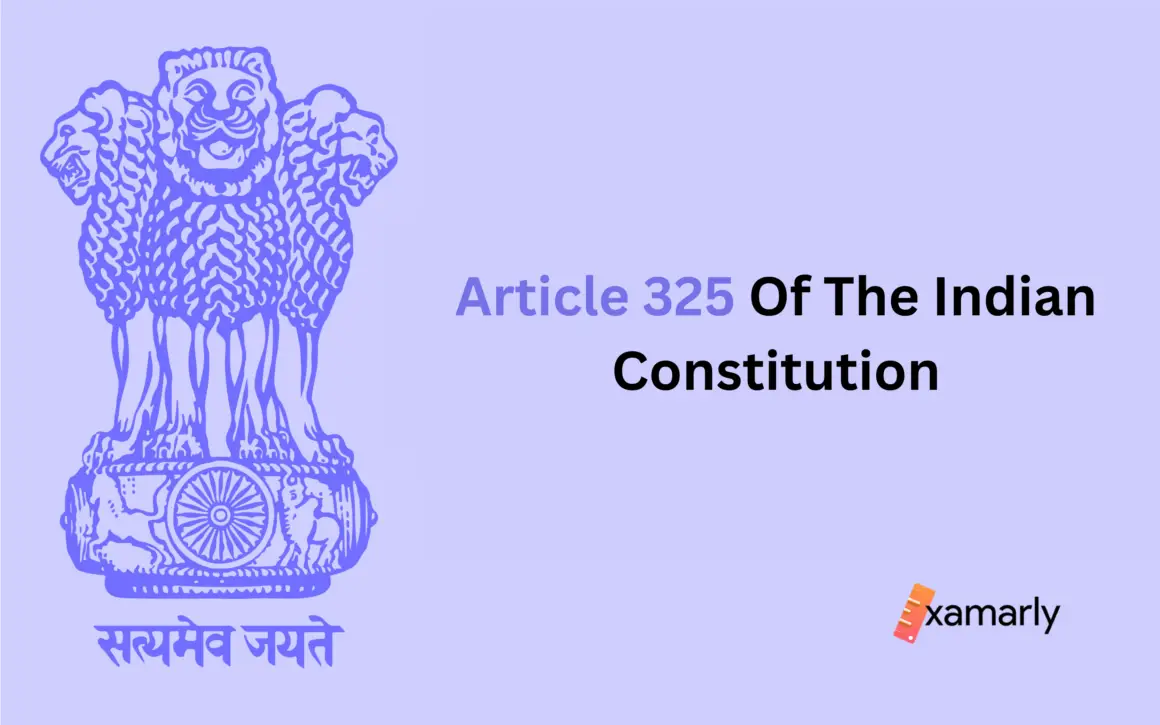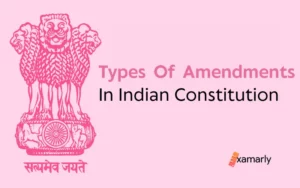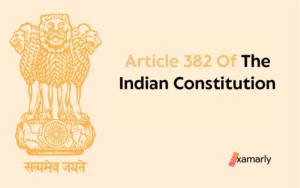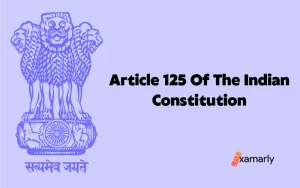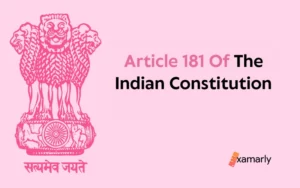Article 325 of the Indian Constitution talks about the electoral roll. It lays down the provisions that are to be taken into consideration for people who are to be enlisted in the electoral roll.
We will cover all the pivotal key terms that are relevant to Article 325 of the Indian Constitution.
- What Is An Electoral Roll?
- Article 325 Of The Indian Constitution – In Detail
- Summing Up
- Some Relevant FAQs
- Q: What is an electoral roll?
- Q: Who is eligible to be on the electoral roll?
- Q: How do I check if I am on the electoral roll?
- Q: How do I get my name added to the electoral roll?
- Q: How often is the electoral roll updated?
- Q: Is it mandatory to be on the electoral roll?
- Q: Can I vote if I am not on the electoral roll?
What Is An Electoral Roll?
An electoral roll is a list of eligible voters in a particular electoral constituency. In India, the electoral rolls are prepared and revised by the Election Commission of India (ECI), which is a constitutional body responsible for conducting free and fair elections in the country. The electoral roll is a crucial part of the electoral process, as it determines who is eligible to vote in an election.
The electoral roll is prepared based on information provided by the citizens themselves, as well as by various government agencies.
To be eligible to be included on the electoral roll, a person must be a citizen of India, be 18 years of age or older, and not be disqualified from voting due to any legal disqualification. The electoral roll is revised periodically to ensure that it is up-to-date and accurate.
The electoral roll is used to determine the number of voters in each electoral constituency, and to allocate seats in the parliament and state legislative assemblies.
It is also used to issue voter identification cards, which are required for a person to be able to vote in an election. The electoral roll is an important part of the democratic process in India, and is used to ensure that every eligible voter has the opportunity to participate in the electoral process.
Let us now dig deep into Article 325 of the Indian Constitution and grasp all the related concepts.
Article 325 Of The Indian Constitution – In Detail
325. No person to be ineligible for inclusion in, or to claim to be included in a special, electoral roll on grounds of religion, race, caste or sex There shall be one general electoral roll for every territorial constituency for election to either House of Parliament or to the House or either House of the Legislature of a State and no person shall be ineligible for inclusion in any such roll or claim to be included in any special electoral roll for any such constituency on grounds only of religion, race, caste, sex or any of them
This provision in Article 325 of the Indian Constitution states that every person has the right to be included on the electoral roll (a list of eligible voters) for elections to the national parliament (either House of Parliament) or to a state legislature (either House of the Legislature of a State).
The clause also states that no person can be excluded from the electoral roll or claim to be included on a special electoral roll on the basis of their religion, race, caste, sex, or any combination of these factors.
This means that everyone has an equal right to vote, regardless of their religion, race, caste, or sex. The electoral roll is used to determine who is eligible to vote in an election, and this provision ensures that everyone has an equal opportunity to participate in the democratic process.
Related – Article 326 Of The Indian Constitution
Summing Up
We can conclude from Article 325 of the Indian Constitution that there should be one general electoral roll (a list of eligible voters) for each geographical area represented by a political representative in the national parliament or a state legislature and that no person should be excluded from being on that roll or be able to claim to be on a special roll, solely based on their religion, race, caste, or sex.
Some Relevant FAQs
Q: What is an electoral roll?
A: An electoral roll is a list of eligible voters in a particular geographical area. It is used to conduct elections for political representatives at the national and state level.
Q: Who is eligible to be on the electoral roll?
A: Eligibility to be on the electoral roll depends on the laws of the country or state. Typically, you must be a citizen of the country, be at least 18 years of age, and be a resident of the electoral district. There may also be other requirements, such as being of sound mind and not being convicted of certain crimes.
Q: How do I check if I am on the electoral roll?
A: You can check if you are on the electoral roll by contacting the electoral commission of your country or state, or by searching for your name on the electoral roll online. Many electoral commission websites provide a facility for checking the name in the electoral roll
Q: How do I get my name added to the electoral roll?
A: To get your name added to the electoral roll, you need to fill out a voter registration form, which can usually be found on the website of the electoral commission. You will need to provide proof of your identity, age, and residency in the electoral district. Some countries allow online registration and some forms are also available in offline mode.
Q: How often is the electoral roll updated?
A: The electoral roll is usually updated regularly, and new voters can be added at any time. However, there are also specific times when the roll is updated, such as before an election.
Q: Is it mandatory to be on the electoral roll?
A: It is mandatory to be on the electoral roll to vote in most countries. Even if you choose not to vote, being on the electoral roll is a way to make your voice heard during the election process.
Q: Can I vote if I am not on the electoral roll?
A: You cannot vote if you are not on the electoral roll. It is important to ensure that your name is on the roll before the voting day.


